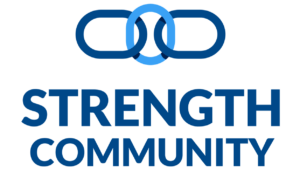The word diet comes from the Greek “diaita” which means way of life, which in turn is derived from the verb “diaitan” which means rule your own life, to govern yourself. This to me implies individuality!
As you can see, the original meaning of the word has been distorted to the point that today the word diet is a synonym of restriction, and I believe that this is one of the reasons why it also became a synonym of failure.
That’s why I don’t use the word diet with my athletes and clients. I teach them that what we are doing is finding what is best for him/her in terms of their goals and most importantly, their health. As the magnificent Dr. Sonja Pettersen taught me through this quote of Herophilos: “When health is absent, wisdom cannot reveal itself, art cannot manifest, strength cannot fight, wealth becomes useless, and intelligence cannot be applied”.
Should the diet change with time?
Staying on the same diet forever doesn’t make much sense, as in the case of my athletes and clients, their eating habits evolve with time when genetics allow us to. To give you an example, a client can come with bad insulin sensitivity and after a few months of eating according to the current body capabilities, insulin sensitivity improves and we can start introducing carbohydrates at certain specific and strategic moments of the day. The end goal is to achieve metabolic flexibility, which basically means that your body is capable of efficiently using carbs or fats as source energy. More of this in a moment.
Should you count calories?
Another “strategy” I don’t use with my athletes/clients is counting calories. I believe that habit drives people crazy and obsessive which raises hormones like cortisol, which negatively affects their fat-burning efforts. On top of that, depending on the level of obsession, it can lead to isolation. Just imagine that your grandmother invited you for lunch. Are you going to ask her how many grams of this and how many milliliters of that she added to the meal? And in case that it crosses your mind to ask such a question, what will be the answer? Maybe “enough” will be the best that you’ll get. Not knowing how many calories you’ll have is a good enough reason not to enjoy a lovely meal and fantastic conversation with members of your family?
The counting calorie strategy very often becomes a synonym of failure. When people, for whatever reason, stop counting calories for a short period of time, they normally don’t go back to counting calories again.
Also, as Coach Larry Vinette says, counting calories is reserved for people competing in physique that need to reach extremely low bodyfat levels. 3% for males and 6% for females. Just as a reference, I’ve had females around 10% and males around 6% body fat without counting calories.
Types of diets
There are countless diets out there, and trying to talk about all of them in an article, might make it turn into an encyclopedia. For that reason, I’ll classify the diets in a few categories:
- Mediterranean
- High carb
- Balanced
- Low carb
- Extreme
According to research, the healthiest diet is the Mediterranean diet, but as I said at the beginning of the article, that doesn’t mean that every single person in the world should embark on that eating habit (individuality). For example, if you prescribe a Mediterranean diet to a Pima Indian, mostly possible you’ll create a big health issue.
High carb diets are reserved for people with exceptional insulin sensitivity (probably 20-25% of the world’s population) and normally they are located in Eastern Europe and Russia. We have had clients that we ask them to try a high-protein, low-carb, and moderate fat breakfast and they simply don’t function during the day and gain fat.
Low carb diets are normally prescribed for people with low insulin sensitivity (about 70-75% of the world population) or genetic predisposition for metabolic conditions like diabetes. That’s the vast majority of people you’ll deal with, first because of genetics and second because the eating habits have changed so much, that people are damaging their insulin sensitivity day by day.
Balanced diets work well on people with decent insulin sensitivity and the possibility of using some fat as fuel. These are not very common (somewhere between 5-10% of the world’s population), but chances are that you’ll find them and that’s why I mentioned them here.
In the extreme diets, I include ketogenic and carnivore diets. Those are eating habits that I don’t recommend maintaining in the long term unless a particular condition forces the person to keep this type of regime. Ketogenic diets are great for neurological conditions like Parkinson’s and Alzheimer’s disease. Pure carnivore diets are really helpful for autoimmune conditions and certain gastrointestinal problems like dysbiosis and/or SIBO, that can lead to autoimmune conditions.
In Part 2 of this article, I’ll explain how I prescribe eating plans to my clients, how I re-introduce carbohydrates, how I achieve metabolic flexibility, amongst others.

